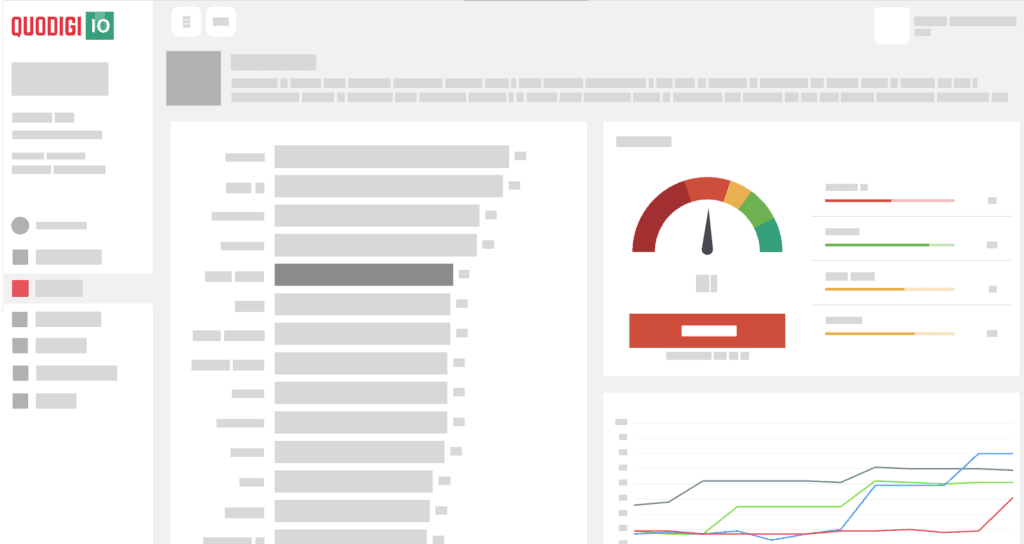The techniques of Artificial Intelligence and Advanced Analytics are no longer reserved for a minority of large companies but are now within the reach of any organization, including SMEs with small budgets, which can begin to integrate them into their reality without reverential fears.
Past
If we go back in memory to about ten years ago, starting an Advanced Analytics (or, as it was more fashionable to say then, Data Mining) project typically required the following steps:
- select and purchase a specialized proprietary software platform, among the few that exist;
- talk to the software vendor to correctly size a server and storage needed;
- purchase and wait for the arrival of that hardware to finally install the software;
- begin to collect laboriously internally the first data on which to start the analysis;
- hire staff or consultants experienced in the use of the particular proprietary platform chosen as well as, if possible, in the subject of interest.
All this, with a cost rarely lower than 100K€ (excluding personnel and organizational effort), even for less ambitious installations.
At that time it was therefore difficult for subjects other than banks, insurance companies, telcos and large manufacturing companies to even conceive of experimentation in these areas. It was practically impossible for the typical Italian SME to access the opportunities of an advanced solution.
Present
Fast forward to today...can be enough:
- open a browser and point it to one of the many cloud-based analytics solutions (such as AWS Sagemaker or Google Colaboratory);
- choose one of the notebooks (objects integrating code, documentation and graphics) already made available by these platforms (or upload your own);
- select a public domain dataset (or upload your own);
- initiate processing on specialized hardware (e.g., for deep learning) and that scales automatically as needed.
All this at zero cost for the first experiences and then at a cost in the order of a few thousand euros per year for a serious application in production; but, above all, paying exclusively on the basis of the effective use of resources.
Or, if you prefer a more traditional approach, just download one of the many open source platforms (such as Python, H2O or Knime), install it on a suitable laptop and start working on your data, to switch when necessary to a production deployment on single or cluster servers, on-premises or in the cloud.
In any case, whatever the preferred option, all these solutions have in common the possibility of being able to fit perfectly into the actual needs of the user, in terms of their actual needs, maturity of their organisation and spending capacity.
The new scenario of great flexibility and affordability is finally ideal for the characteristics of SMEs: it is no longer necessary to incur significant ex-ante costs just to start verifying what benefits an application based on Machine Learning can offer, nor is it necessary to obtain the approval of various business functions to test an intuition.
The new situation of "democratizationAdvanced Analytics" finally makes it possible to combine them with the characteristics of creativity and problem-solving typical of our medium-sized companies, opening the way to a growing number of new applications.
Future
Having said this, we must not trivialize excessively and delude ourselves that, just because the ease of access has increased enormously, it is equally obvious to be able to apply these opportunities in a profitable way in our own company. Like any technology, Artificial Intelligence must be governed by taking into account the concrete objectives that can be pursued, without being conditioned by the daily bombardment of news on the extraordinary results achieved. Starting from specific and well-defined applications, learning from similar experiences and building progressively on the basis of your real needs is the virtuous path to follow.
Another aspect that generally conditions and limits the application of analytical technologies is the fear of not having the knowledge indispensable and to have difficulties in finding the necessary professionalism necessary.
This fear is not completely unfounded, since the human factor, more than technology, is the key to profitably apply analytics; however, one must consider that the scenario has changed here as well. Since most of the new developments are available (or rather, are usually born) in the open source world, with a very fast exchange between the academic world and implementations, similarly the free availability of documentation, tutorials, descriptions of real experiences is developing. We are no longer bound to the almost initiatory texts provided by vendors, but we have at our disposal an extremely wide and complete variety of sources.
Similarly, young people coming out of universities have often had the opportunity to experiment with passion a fairly wide variety of technologies and, above all, they are immersed in an ecosystem made up of informal meetings, discussion groups, hackathons and competitions that allows for a good growth of skills.
The ability to integrate the most technological and scientific aspects with a true understanding of the business and the concrete needs of companies remains fundamental, in order to be able to translate the possibilities of analytics into solutions to real problemsat the same time maintaining a medium-long term vision without being tied to contingent fashions. And this ability generally comes from concrete experience combined with a correct methodological approach but also from enthusiasm for the new opportunities that this field offers every day.




